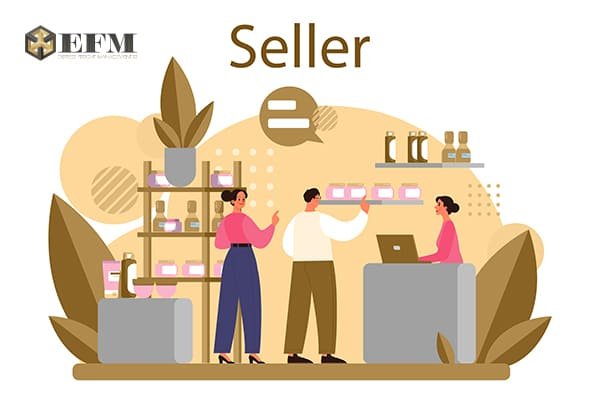
Freight News
DDP Incoterms: Business Guide

In any international deal, clarity is king. To make sure everyone is on the same page, businesses use a playbook called Incoterms®. These official rules from the International Chamber of Commerce (ICC), which fall under broader understanding international shipping regulations, let buyers and sellers agree on a single term that defines who is responsible for every step of the journey—from packaging to customs clearance.
In this article, we’re going to focus on a big one: DDP (Delivered Duty Paid). This term is the equivalent of a seller providing complete “door-to-door shipping” services, handling virtually everything. It sounds great for the customer, but it places the absolute maximum risk and cost on the seller. Understanding DDP isn’t just helpful; it’s essential for protecting your bottom line.
Disclaimer: This article provides a general overview of the DDP Incoterms and is for informational purposes only. It is not legal or professional advice. Parties should always refer to the official text of the Incoterms® 2020 rules published by the International Chamber of Commerce (ICC) and seek advice from legal and logistics services professionals when negotiating specific contract terms.
What Are Incoterms?
Before we dive into the deep end with DDP, let’s talk about what Incoterms® are in the first place. Think of them as the official rulebook for global trade. Created and regularly updated by the International Chamber of Commerce (ICC), these rules exist to provide a universal framework for interpreting common trade terms. This eliminates guesswork, preventing misunderstandings between buyers and sellers in different countries. At their core, every Incoterm clarifies three critical things:
- Obligations: Which party is responsible for tasks such as transport, loading, unloading, and customs clearance.
- Risk Transfer: The precise point at which the risk of loss or damage to the goods passes from the seller to the buyer.
- Cost Allocation: Which party bears specific costs associated with the shipment.
There are currently 11 Incoterms®, categorized by mode of transport.
What Is DDP?
DDP stands for “Delivered Duty Paid,” and it essentially means the seller handles everything. They are responsible for the entire journey of the goods, from their warehousing facility to your named destination. This includes arranging and paying for all transport, handling both export and import customs procedures, and—this is the crucial part—paying all required import duties and taxes on your behalf.
Think of it as the ultimate “door-to-door” service in international trade. The seller assumes all costs and all risks until the moment the goods arrive at your location, ready for you to simply unload them. It’s the Incoterm that places the maximum responsibility on the seller, and it can be used for any mode of transport.
Key Obligations
Understanding the division of responsibilities is paramount when using DDP.
Seller’s Responsibilities

- Goods, Commercial Invoice, and Documentation: Provide the goods and commercial invoice as per the sales contract.
- Export Packaging and Marking: Ensure goods are appropriately packaged and marked for the entire journey (especially important for dangerous goods shipping).
- Export Licenses and Customs Formalities: Handle all export clearance formalities in their own country.
- Contract of Carriage: Contract and pay for all transportation (pre-carriage, main carriage, and on-carriage) to the named place of destination.
- All Freight and Terminal Costs: Bear all costs until the goods are delivered to the final destination.
- Import Customs Formalities: Crucially, the seller must handle all import customs clearance procedures in the buyer’s country.
- Further Reading: The Importance of Accurate Documentation in Customs Clearance
- Payment of Import Duties and Taxes: The seller must pay all import duties and taxes (e.g., tariffs, VAT, GST) in the destination country.
- Proof of Delivery: Provide the buyer with a transport document that allows them to take possession of the goods.
- Risk: Bear all risk of loss or damage to the goods until they are delivered to the named destination, ready for unloading.
Buyer’s Responsibilities

- Payment for Goods: Pay the price of the goods as stipulated in the sales contract.
- Unloading: The buyer is responsible for unloading the goods from the arriving means of transport at the named place of destination.
- Assistance: Must provide assistance to the seller (at the seller’s request, risk, and cost) in obtaining any documents required for import clearance.
The “Named Place of Destination”
Under DDP, specifying the “named place of destination” with absolute precision is critical. This is the single point where the seller’s extensive obligations end.
An ambiguous location like “DDP Anytown, USA” is insufficient. A proper contract should state the full address, for example, “DDP Buyer’s Warehouse, 123 Main St, Anytown, USA, Incoterms® 2020.” This clarifies the exact endpoint of the seller’s responsibility. The seller must deliver the goods to this spot, on the arriving vehicle, which often involves final-mile trucking. The seller is not responsible for unloading the goods.
Transfer of Risk
The transfer of risk under DDP is straightforward but occurs very late in the shipping journey. The risk officially transfers from the seller to the buyer the very moment the delivery vehicle arrives at the agreed-upon destination and is ready for the buyer to begin unloading.
For example, if the delivery truck crashes one block from the destination, it’s the seller’s problem to solve. However, if the buyer accidentally drops a pallet of goods while unloading them from that truck, the loss is on the buyer.
Cost Allocation
The cost allocation under DDP is the most comprehensive for the seller among all Incoterms.
- The Seller Pays For Everything to get the goods to the destination point. This includes export packaging, pre-carriage, export clearance fees, main freight costs (air freight or sea freight), destination terminal charges, on-carriage to the final named place, and—most significantly—all import customs clearance fees, import duties, and taxes (like VAT or GST) in the buyer’s country.
- The Buyer Pays for one primary action: unloading the goods from the arriving truck or vehicle at the destination. From the moment the goods are at their disposal, the buyer assumes all subsequent costs and risks.
When Should You Use DDP?
For sellers, offering DDP terms is the ultimate “white-glove” service. You provide a single, all-inclusive price, and the customer receives their goods at their doorstep without having to worry about shipping, customs, or surprise fees. It’s a fantastic way to create a seamless customer experience, which is why it’s often supported by international courier services for ecommerce businesses. For buyers, DDP is no doubt the simplest option available.
For all its benefits, DDP actually comes with major risks for the seller:
- Importer of Record (IOR): The seller must act as the importer in the destination country. This may be legally complex or impossible if the seller does not have a registered entity in that country. They are responsible for compliance with foreign regulations.
- Unforeseen Costs: The seller is exposed to any and all unforeseen delays, port congestion, customs inspections, and storage fees in the foreign country, over which they have little control.
- Taxes (VAT/GST): In many countries, the seller will have to pay Value-Added Tax (VAT) or Goods and Services Tax (GST) on the import. If the seller is not registered to do business in that country, they may be unable to reclaim this tax, turning it into a direct, unrecoverable cost that erodes profit margins.
Comparison to DAP (Delivered at Place)
DAP is the Incoterm most closely related to DDP and is often a much safer and more practical alternative for the seller. The rules are identical in every way except for one key point: the buyer is responsible for import customs clearance and the payment of all duties and taxes.
Comparison to EXW (Ex Works)
Under Ex Works (EXW), the seller’s only obligation is to make the goods available at their premises; the buyer is then responsible for all subsequent risks and costs, crucially including export clearance and the loading of goods. As such, DDP can be seen as the polar opposite to EXW.
Things To Consider

For US businesses engaging in international trade using DDP, several practical considerations warrant careful evaluation to prevent significant financial and logistical risks.
Firstly, the clarity of the “named place of destination” in the sales contract is of the utmost importance. Ambiguity creates a high-stakes risk for the seller. A general location like “DDP Chicago” is insufficient. The contract must specify the exact delivery address, such as “DDP Buyer’s Warehouse, 123 Main St, Chicago, IL, USA,” as this precise point defines the end of the seller’s maximum obligations for cost and risk.
Secondly, and most critically, is the challenge of the Importer of Record (IOR). The IOR is the entity legally responsible for ensuring the goods comply with local laws, filing the required documents, and paying the import duties.
- For a US Exporter: When selling DDP to a foreign country, the US company may not be legally able to act as the IOR in that country without having a registered business entity there. This is a significant barrier.
- For a US Importer: When buying DDP, the foreign seller must arrange for a US IOR. If they are unable to, or do so incorrectly, the shipment can be delayed or refused by U.S. Customs and Border Protection. This will cause major disruptions, especially given the common challenges in FDA customs clearance for international shippers.
- If they are unable to, or do so incorrectly, the shipment can be delayed or refused by U.S. Customs and Border Protection, creating a major disruption for the US buyer.
Thirdly, the responsibility for managing and paying foreign taxes falls entirely on the seller. For a US company exporting DDP to a country with a Value-Added Tax (VAT) or Goods and Services Tax (GST), the seller must pay these taxes. In many cases, a non-resident seller cannot reclaim these taxes, turning them into a direct, unrecoverable cost that must be factored into the pricing.
Furthermore, while the seller arranges all documentation, this creates risks for both parties. The seller carries the immense burden of preparing flawless export and import documents for two different countries. The buyer, in turn, relinquishes all control over the shipping process and has limited visibility or recourse if the seller’s arrangements lead to delays.
Finally, under DDP, the seller is responsible for the risk of loss or damage until the goods are delivered and ready for unloading. This means the seller must arrange for sufficient cargo insurance to cover the entire transit journey to the final named destination, as the buyer bears no risk until that point.
Examples
To illustrate how DDP functions in real-world scenarios, consider its application in trade between the US and ASEAN countries.
First, imagine a US-based home goods company importing handcrafted furniture from a supplier in Vietnam. If they agree to the term “DDP Buyer’s Warehouse, Austin, TX, Incoterms® 2020,” the experience for the US buyer is remarkably straightforward. They agree to a single, all-inclusive price and then simply wait for the goods to appear at their warehouse door. In contrast, the Vietnamese seller assumes full responsibility for the entire complex journey. They must manage all logistics and pay for every cost, including ocean freight, US customs clearance, and all US import duties, bearing all the risk until the moment of delivery. While simple for the buyer, it places the entire risk and workload of a complex international shipment squarely on the seller.
Now, let’s reverse the roles and consider a US-based tech company exporting high-value electronics to a corporate client in Singapore under the term “DDP Client’s Office, Singapore, Incoterms® 2020.” The American exporter is now responsible for the complete door-to-door process for shipping to Singapore. Critically, this includes navigating Singapore’s customs regulations and paying its import taxes. This scenario perfectly illustrates why DDP is often a risky choice for exporters. It demands that they master another country’s import regulations and tax laws—a significant burden that is often better managed by the buyer, who operates within their own home territory.
The principles discussed in these US-ASEAN examples are broadly applicable to trade across the region. Whether your business involves:
- Shipping to Malaysia or shipping from Malaysia to USA
- Shipping to Indonesia or shipping from Indonesia to USA
- Shipping to Thailand or shipping from Thailand to USA
- Shipping to Brunei or
- Shipping to Philippines
A clear understanding of DDP Incoterms is beneficial.
Conclusion
Delivered Duty Paid (DDP) offers buyers the ultimate convenience, but it places the entire burden of cost, risk, and responsibility onto the seller. While it has its place in certain customer-centric models, the practical and financial risks for the seller—especially concerning import clearance and taxes in a foreign country—are immense. For any business considering DDP, a thorough risk assessment is critical. Navigating Incoterms can be complex, and for detailed guidance on applying DDP or other, safer terms to your specific international shipments, consulting with an experienced logistics professional is advisable.
At Express Freight Management, we understand the nuances of Incoterms and the critical role they play in your supply chain. Our experienced team is ready to provide expert guidance and comprehensive freight forwarding services tailored to your specific needs, whether you’re shipping to or from the USA, engaging in ASEAN trade, or require specialized logistics solutions. Don’t let the complexities of international shipping hinder your business growth. Contact us today to discuss how our freight forwarding expertise can help you leverage DDP and other Incoterms effectively, ensuring your cargo moves smoothly and efficiently across borders.
Streamline your logistics with Express Freight Management – your trusted partner for seamless global shipping solutions. As a leading international freight forwarder based in the United States, we have successfully managed trades between the United States and Brunei, Cambodia, Indonesia, Laos, Malaysia, Myanmar, Philippines, Singapore, Thailand, and Vietnam for nearly two decades. With expert knowledge, advanced technology, and a commitment to reliability, we provide seamless logistics management that helps you focus on what matters most—growing your business.



